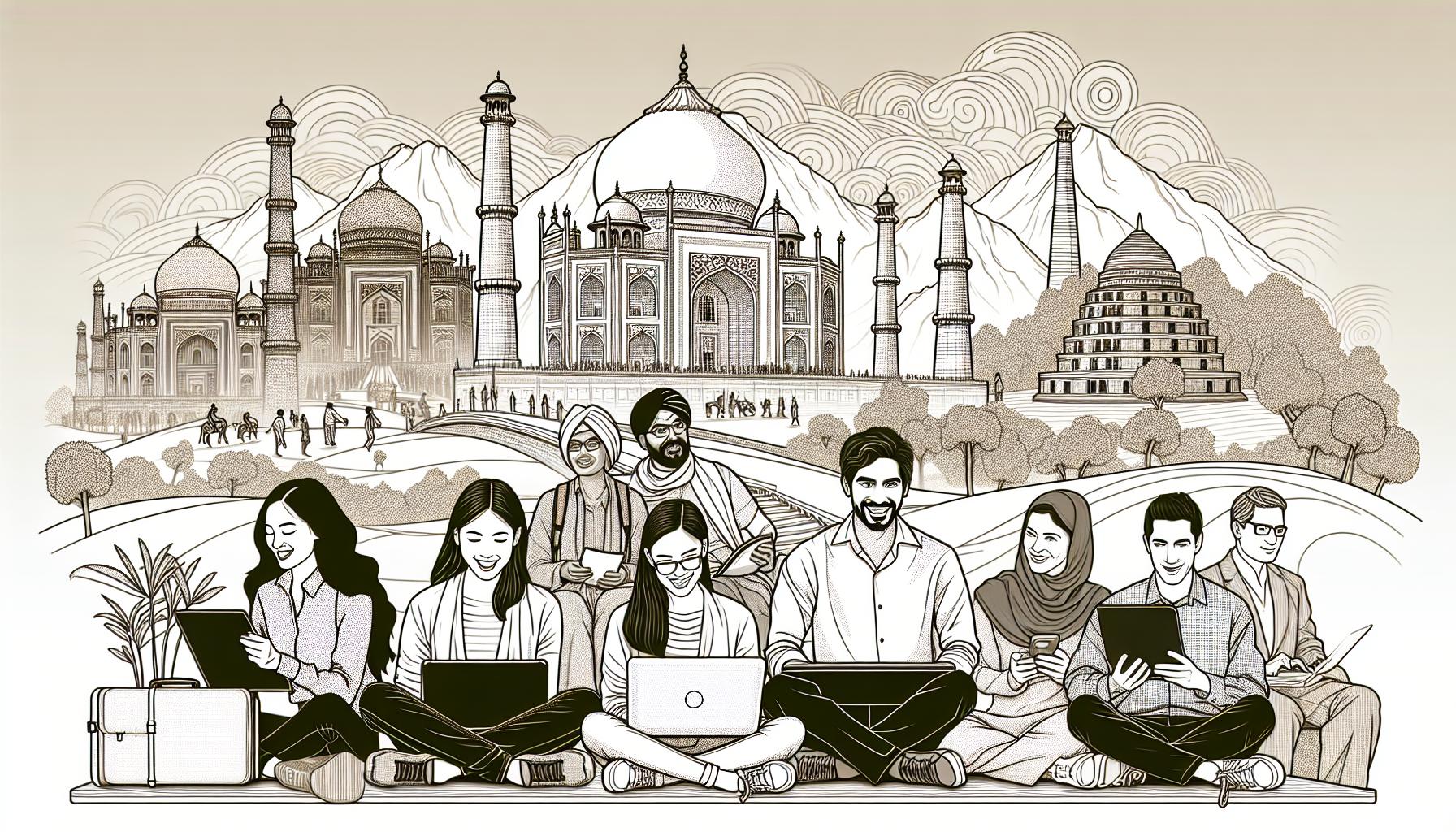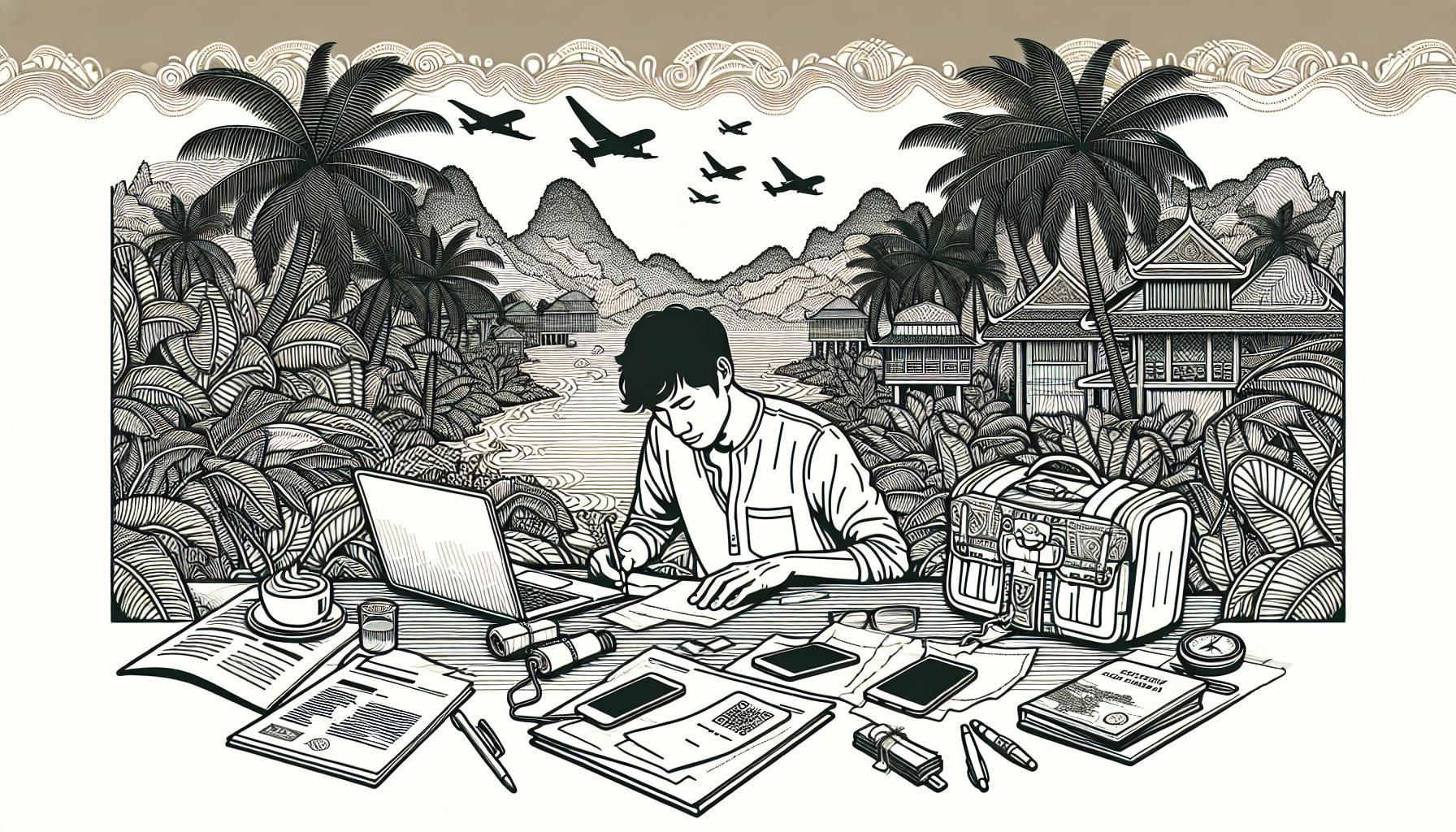Asia is becoming a hot spot for digital nomads, thanks to its affordable cost of living, rich culture, and the introduction of digital nomad visas. These visas make it easier for remote workers to live and work in countries like Thailand, Indonesia, and the Philippines.
Digital nomad visas are a game-changer for the remote work industry. They’re not just a permit to stay but an invitation to experience Asia’s vibrant lifestyle while continuing one’s professional journey.
These visas are reshaping the traditional work-travel boundaries, making Asia an attractive destination for digital nomads worldwide. Let’s explore the opportunities and benefits these digital nomad visas in Asia offer.
What is a Digital Nomad Visa?
The world of traditional work boundaries is changing, getting reshaped by ever-evolving technology and the startup culture. One such groundbreaking innovation is the “Digital Nomad Visa”.
Definition
A Digital Nomad Visa allows individuals to live and work remotely in a host country different from their country of origin. Traditionally, work visas are tied to a specific employer, but a Digital Nomad Visa provides the person the unique flexibility to work for any company or as a freelancer.
The push for these visas began as countries started acknowledging and recognizing the growing population of digital nomads – professionals who adopt remote work and leverage technology to perform their jobs from anywhere in the world.
Benefits
Digital Nomad Visas offer various benefits for the person, host country, and even the global business world. Some of the key benefits include:
- Ability to live and work in diverse cultures, providing a broader perspective that can enhance creativity and problem-solving skills.
- Increased flexibility and freedom to plan their work schedule and lifestyle.
- Opportunity to expand their professional network to include international contacts.
- Lower cost of living compared to Western countries, allowing savings and financial independence.
- The host countries, on their part, benefit from the global exposure, investment, and increase in local spending by these digital nomads.
Looking at this shift in work culture, the Digital Nomad Visa could be seen as a major game-changer. It’s not just blurring the line between work and travel but also painting it with the colors of freedom, diversity, and connectivity.
Digital Nomad Visa Options in Asia

As the concept of remote work continues to gain momentum, many Asian countries are adapting to the needs of digital nomads worldwide by offering specialized visas. Numerous Asian countries have joined the race to attract these remote professionals by issuing Digital Nomad Visas. Here’s a snapshot of some options available in Asia, with countries like Thailand, Malaysia, and Indonesia leading the charge.
Thailand
Thanks to its vibrant culture, exquisite cuisine, and budget-friendly cost of living, Thailand has long been a favorite destination for digital nomads.
Recognizing this workforce’s opportunities, the Kingdom of Thailand has launched the “Smart Visa,” specifically designed to encourage digital nomads and skilled professionals to stay longer.
The Smart Visa permits individuals to stay in Thailand for up to 4 years without a local sponsor, setting it apart from the standard Non-Immigrant Business Visa.
Malaysia
Then there’s Malaysia, a country that has caught the eye of digital nomads for its cultural diversity and modern infrastructure. The Malaysian government offers the “Malaysia My Second Home (MM2H)” Programme, which provides non-Malaysians a long-stay visa of up to 10 years to help their stay.
The MM2H Program is government-approved, and holders of this visa have the flexibility to work for any company, making it a unique offering for digital nomad professionals.
Indonesia
Indonesia, a country of more than 17,000 islands, offers an outstanding lifestyle to digital nomads. To attract remote workers, Indonesia has begun issuing the “Temporary Stay Visa,” also known as Working KITAS.
The Temporary Stay Visa provides a stay of up to 2 years and allows digital nomads to earn an income while legally immersing themselves in Indonesian culture.
It’s also crucial to remember that while these visas offer numerous benefits and conveniences, they also have their own rules and regulations that must be diligently followed.
How to Apply for a Digital Nomad Visa In Asia

Let’s investigate the process of securing such a visa.
Eligibility Requirements
Eligibility requirements vary slightly between countries, but a common denominator often seen is the requirement of proof of employment or contractor status with a company from the applicant’s home country.
Some of these eligibility requirements are:
- Proof of capacity to live without needing employment in the host country.
- Proof of valid health insurance.
- Evidence of a consistent flow of income.
Documentation Needed
When applying for a digital nomad visa, particular forms of documentation are necessary to validate the stated requirements. The applicant should prepare to present the following:
- Passport (valid for at least another year)
- Proof of accommodation in the chosen country
- A resume or CV
- Proof of income: this could be bank statements or income tax returns.
Application Process
The process begins with an online application on your chosen country’s immigration website. This is followed by providing the required documents, including scanned copies of forms, passport pictures, and financial proof. An application fee is also associated, which usually needs to be paid online.
Next in line would be an interview. Not all countries require this, but for the countries that do, it’s often conducted via a video call. Sometimes, the application might need to authenticate some documents by sending them to the embassy or consulate.
Finally, if everything goes well, the visa is issued, and the foreign nationals are free to begin their digital nomad life in the specified Asian country. It is time for a new chapter, embarking on adventures while working remotely.
Tips for a Successful Digital Nomad Visa Application

The journey to becoming a digital nomad is exciting yet challenging. The visa application process is just one of the hurdles to overcome. But with thorough research, proper documentation, and professional help, it’s not impossible. Let’s investigate each step to ease this process.
Research Visa Requirements
Before one sets foot on any foreign soil, it’s vital to do in-depth research on the visa requirements.
Thailand’s Smart Visa, for instance, necessitates digital nomads to be employed by a foreign company or be in specific “smart” industries. In contrast, Malaysia’s MM2H program requires digital nomads to show financial proof of their ability to support themselves.
Applicants should stay informed about the visa policies, eligibility criteria, and any changes to the rules or requirements. There are reliable online resources such as the Thai Embassy or the official MM2H website to keep the information plenty and accurate.
Prepare Necessary Documents
The second step for a successful application involves gathering and preparing all necessary documents. Be it employment proof, financial statements, or copies of valid passports, each document plays a pivotal role in proving eligibility.
Keeping all documents updated and ready before starting the application process is crucial. A checklist can ensure nothing gets overlooked. Remember, each country may have a different document requirement.
Seek Professional Help
Embarking on the digital nomad journey can be overwhelming. Legalities surrounding visa applications might seem confusing or intimidating. But there’s always room for professional help. Expert guidance from visa application agencies to immigration lawyers can streamline the process. They’re familiar with immigration laws and have processed thousands of applications. They know the ins and outs of the system, and they know what works.
Remember, the digital nomad life awaits. The mesmerizing Asian countries are embracing this new-age lifestyle. So, don’t leave anything to chance regarding visa applications. Knowledge is power, preparation is critical, and professional help can be your secret weapon for success.
